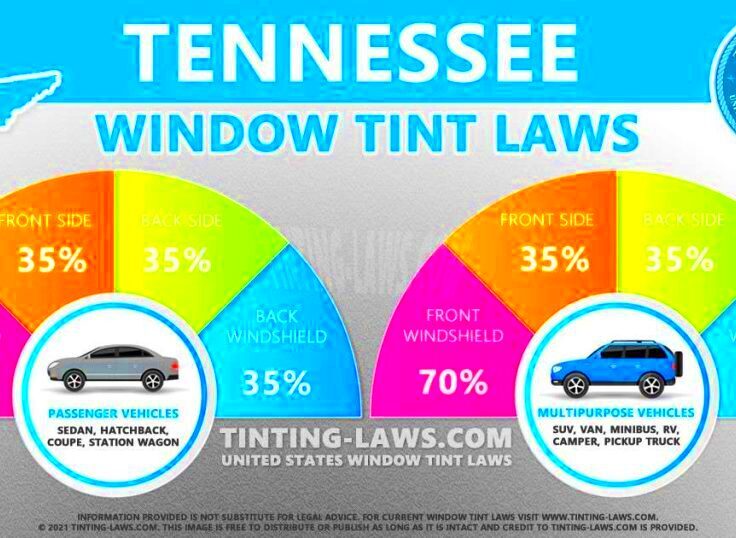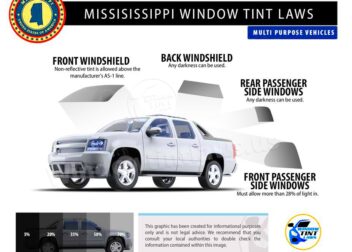Window Tint Laws in Tennessee and Legal Limits
Tennessee has specific laws regarding window tinting that every driver should know. These laws are in place to ensure safety on the roads while also providing comfort for vehicle owners. Understanding these regulations can help you avoid penalties and ensure that your vehicle is compliant. In this post, we’ll explore the purpose of window tinting, the legal limits in Tennessee, and what you need to consider before applying tint to your vehicle.
Understanding the Purpose of Window Tinting
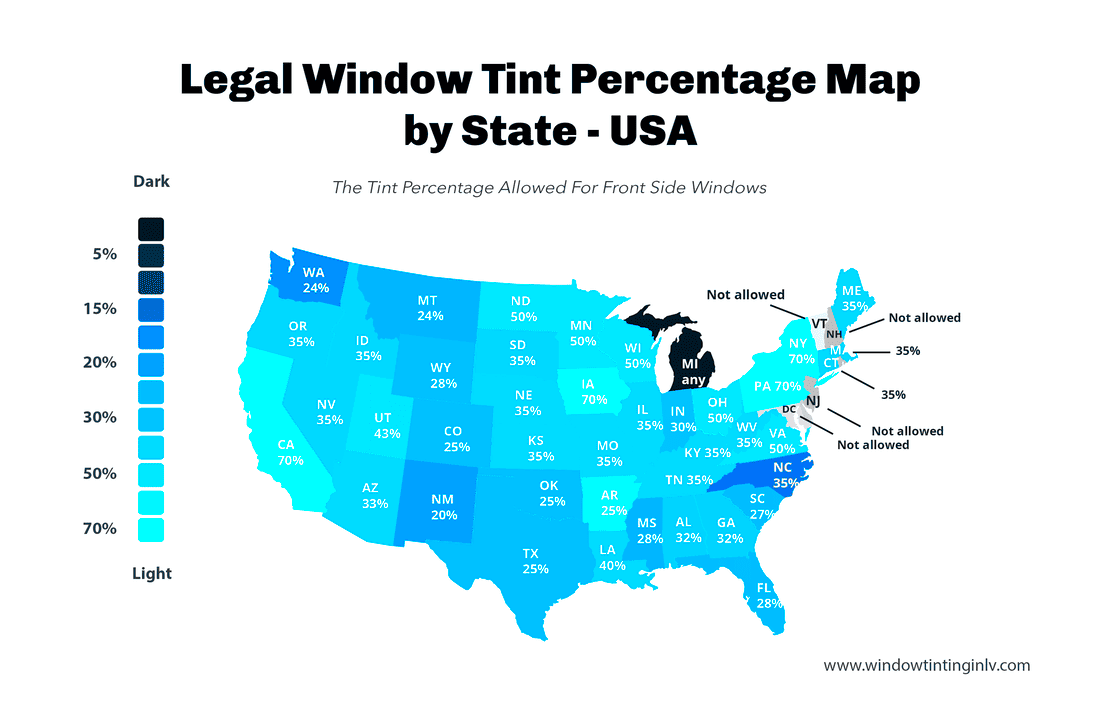
Window tinting serves several important functions that enhance the driving experience. Here are some key benefits:
- Heat Reduction: Tinted windows can significantly reduce the heat inside your vehicle, making it more comfortable, especially during hot summers.
- UV Protection: Window films can block up to 99% of harmful UV rays, protecting your skin and the interior of your car from fading.
- Privacy: Tints provide increased privacy for passengers and belongings, deterring potential thieves.
- Glare Reduction: Tinting can reduce glare from the sun and headlights, making driving safer.
While these benefits are significant, it’s crucial to comply with local laws to avoid issues. Tennessee has set guidelines to balance these advantages with the need for visibility and safety on the road.
Overview of Legal Limits for Tint Darkness
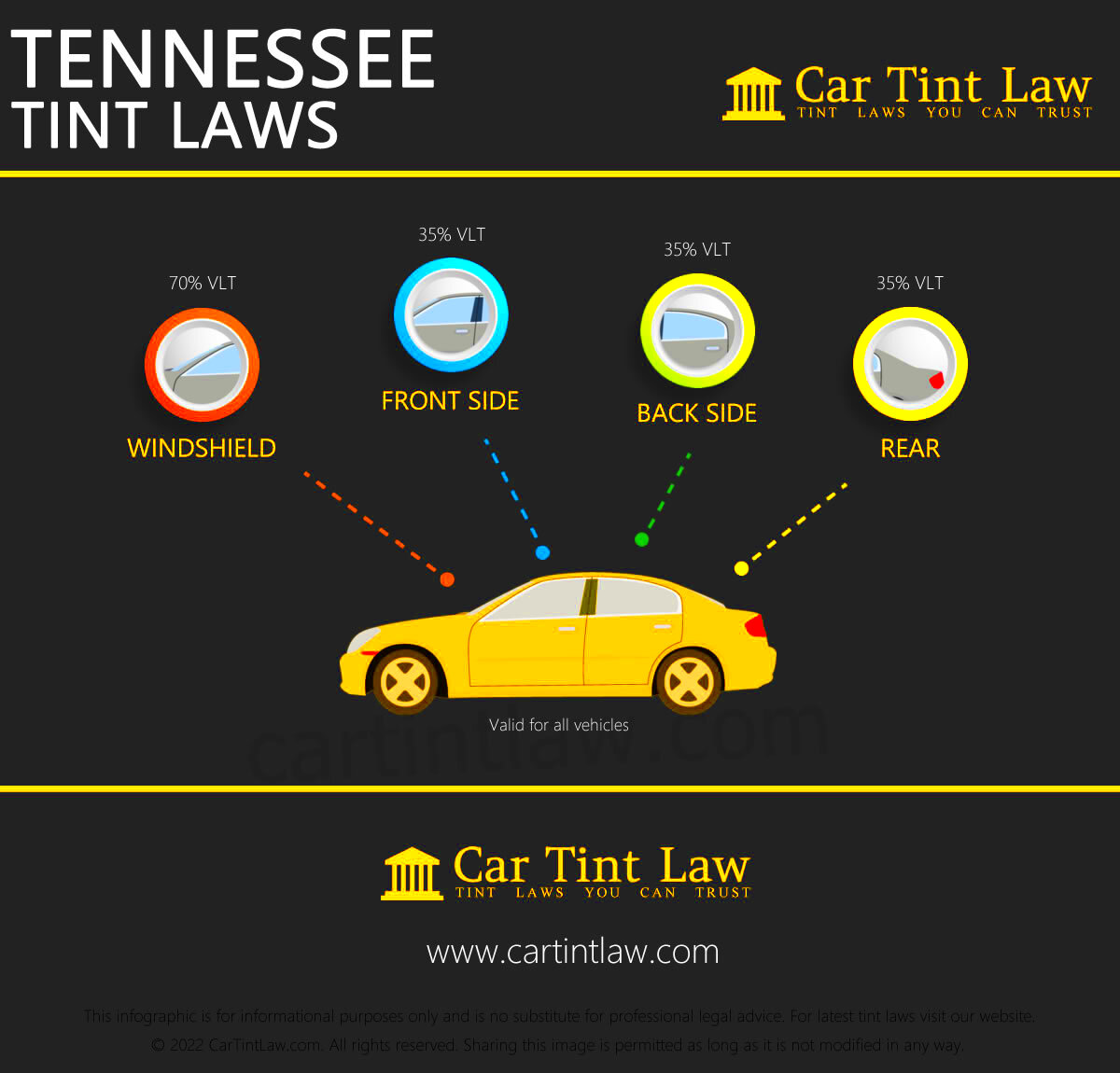
Tennessee has specific regulations regarding how dark your window tint can be. Here’s a breakdown of the legal limits:
| Window Type | Maximum Tint Darkness |
|---|---|
| Front Windshield | Top 5 inches may be tinted (maximum 70% VLT) |
| Front Side Windows | Must allow more than 35% light in (minimum 35% VLT) |
| Back Side Windows | No restrictions |
| Rear Window | No restrictions |
VLT stands for Visible Light Transmission, which measures the percentage of light allowed through the windows. Knowing these limits is essential to avoid fines and ensure your safety while driving. Always consider checking for any updates or changes to the laws, as regulations can evolve over time.
Front Windshield Tint Regulations
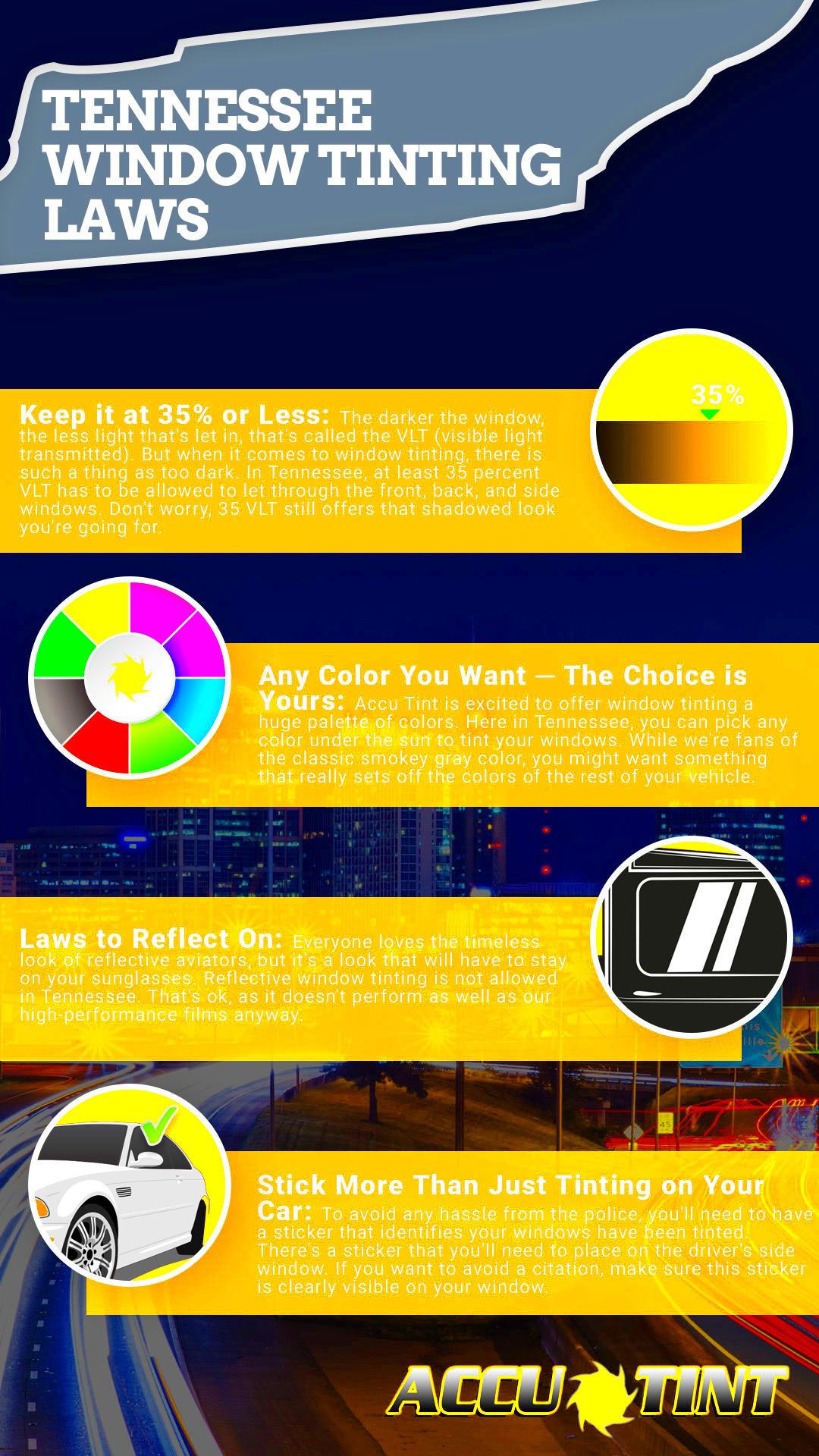
When it comes to tinting the front windshield, Tennessee has specific rules to follow. These regulations are designed to ensure that drivers maintain clear visibility while still benefiting from some tint. The law allows for a tint strip at the top of the windshield, known as the visor strip. Here’s what you need to know:
- Visor Strip: You can tint the top 5 inches of your front windshield. This strip can help reduce glare from the sun without compromising visibility.
- Tint Darkness: The tinted portion must allow more than 70% of light to pass through, meaning it needs to have a minimum of 70% VLT (Visible Light Transmission).
- No Tint Below the Strip: The area below the visor strip cannot be tinted, as this could interfere with visibility and safety.
These regulations are crucial to keep both drivers and passengers safe. Always remember to double-check that your tint complies with the legal limits to avoid fines or the need to remove the tint.
Driver and Passenger Side Window Tint Rules
Tennessee has clear guidelines for tinting the driver and passenger side windows, focusing on safety while allowing some level of customization. Here’s a closer look at the rules:
- Tint Darkness: Both the driver and passenger side windows must have a minimum of 35% VLT. This means at least 35% of light must be able to enter through the windows.
- Reflectivity: There are limits on how reflective the tint can be. The law restricts the level of reflectivity to ensure that the windows don’t become too mirror-like.
- Compliance: It’s vital to have your tint applied by a professional who understands these regulations. If the tint is too dark, law enforcement may issue a ticket.
Staying compliant with these rules will not only keep you legal but also ensure safe driving conditions for you and others on the road.
Back Window Tint Requirements
When it comes to the back windows of your vehicle, Tennessee’s laws are quite flexible. This allows for more freedom in choosing how you want to tint these windows. Here are the key points to consider:
- No Tint Limits: There are no restrictions on how dark you can tint the back side windows or the rear window. This means you can opt for very dark tints if that’s your preference.
- Visibility Considerations: While you have the freedom to choose, it’s essential to consider visibility when selecting your tint. Extremely dark tints can affect your ability to see clearly, especially at night.
- Potential Legal Issues: Even though there are no specific limits, if law enforcement determines that the tint obstructs your view or creates a safety hazard, you may face penalties.
Always prioritize safety and visibility when choosing your tint. This will help you enjoy the benefits of window tinting while remaining compliant with Tennessee laws.
Exceptions and Medical Waivers for Window Tinting
Tennessee recognizes that some individuals may require darker window tinting for medical reasons. If you or a passenger has a medical condition that necessitates more protection from sunlight, you may be eligible for an exception. Here’s how the process works:
- Medical Documentation: To qualify for a medical waiver, you’ll need documentation from a licensed physician. This should outline your condition and explain why darker tinting is necessary.
- Application Process: Once you have your medical documentation, you can apply for a waiver through the appropriate state agency. It’s essential to follow all steps carefully to ensure approval.
- Waiver Limitations: Even with a waiver, there may still be limits on how dark you can go. It’s important to understand the specific guidelines associated with your waiver.
By following the correct procedures, you can enjoy the benefits of window tinting without violating the law. Always keep your medical documentation handy in case you need to show it to law enforcement.
Penalties for Violating Window Tint Laws
Violating window tint laws in Tennessee can result in various penalties, which can vary based on the severity of the violation. Here’s what you should be aware of:
- Fines: The most common penalty for illegal tinting is a fine. First-time offenders may face a lower fine, while repeat offenders could see fines increase significantly.
- Required Removal: In some cases, law enforcement may require you to remove the illegal tint. Failing to comply can lead to further penalties.
- Points on Your Driving Record: Accumulating points for tint violations can lead to higher insurance premiums and potential issues with your driving record.
To avoid these penalties, it’s essential to ensure your vehicle’s tint complies with state laws. Regularly checking your tint can save you time, money, and hassle down the road.
FAQs About Window Tint Laws in Tennessee
When it comes to window tint laws, many people have questions. Here are some frequently asked questions to help clarify common concerns:
- What is VLT? VLT stands for Visible Light Transmission, which measures the amount of light that can pass through your windows. A higher percentage means more light is allowed in.
- Can I tint my car windows myself? While you can technically apply window tint yourself, it’s advisable to have it done by a professional to ensure compliance with the law.
- What happens if I get pulled over for illegal tint? If you’re stopped, the officer may measure your tint. If it’s too dark, you could receive a citation or be required to remove the tint.
- Are there any exemptions for commercial vehicles? Commercial vehicles must also adhere to tint regulations, but certain industries may have specific allowances. It’s best to check local regulations.
Understanding these laws and regulations can help you navigate the world of window tinting in Tennessee. If you have more questions, consult local authorities or legal experts.
Conclusion on Window Tint Regulations in Tennessee
In summary, understanding the window tint regulations in Tennessee is crucial for all vehicle owners. Compliance with the law not only helps you avoid fines and penalties but also ensures safety for you and others on the road. While you have the freedom to customize your vehicle with window tinting, it’s essential to adhere to the legal limits for each type of window. If you require special accommodations for medical reasons, remember to obtain the necessary documentation and follow the application process. By staying informed and responsible, you can enjoy the benefits of window tinting while keeping your vehicle within the law.
